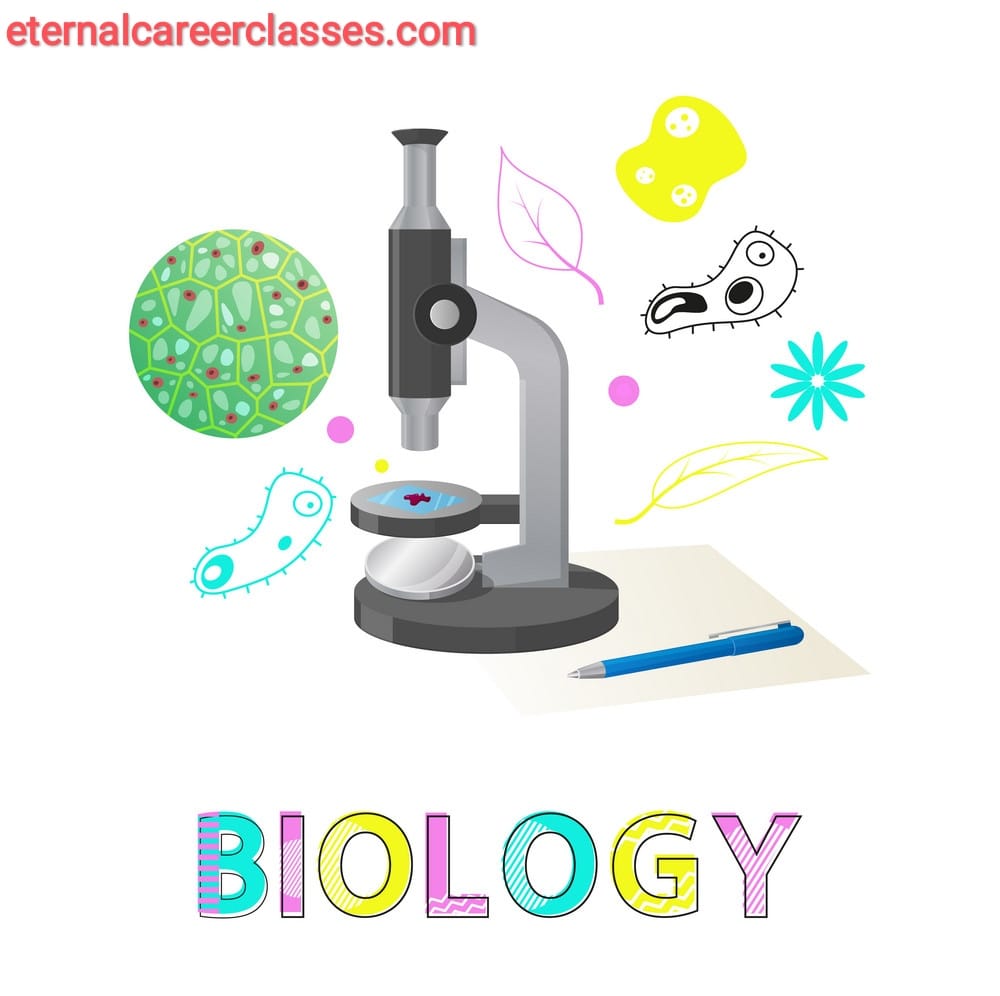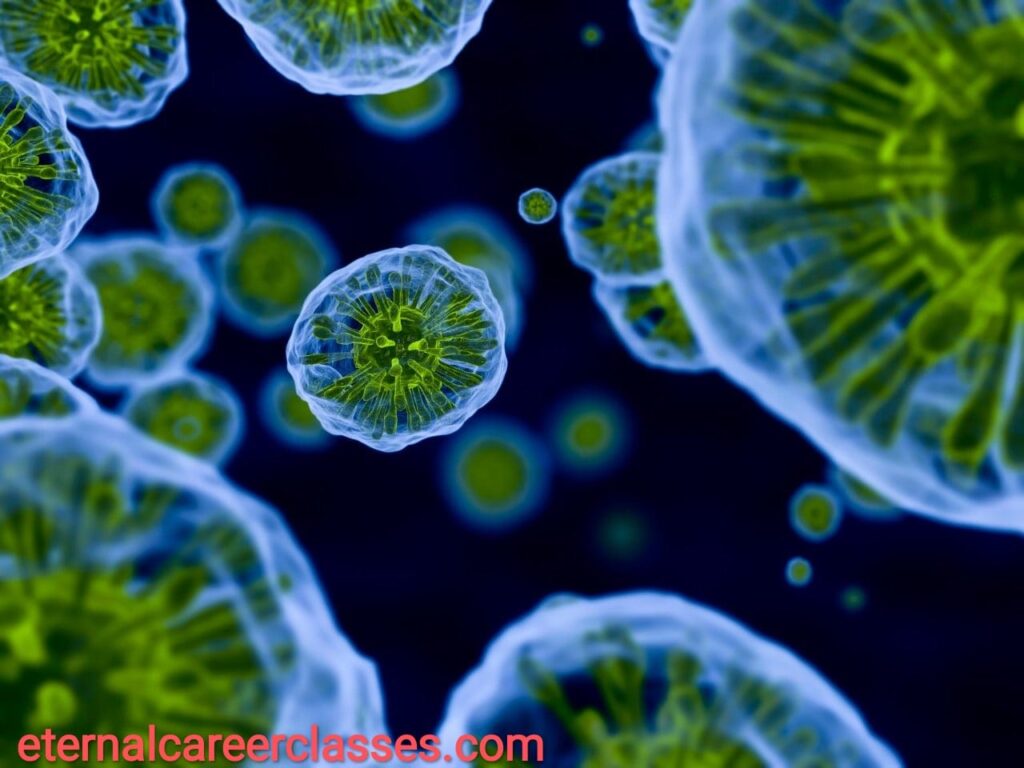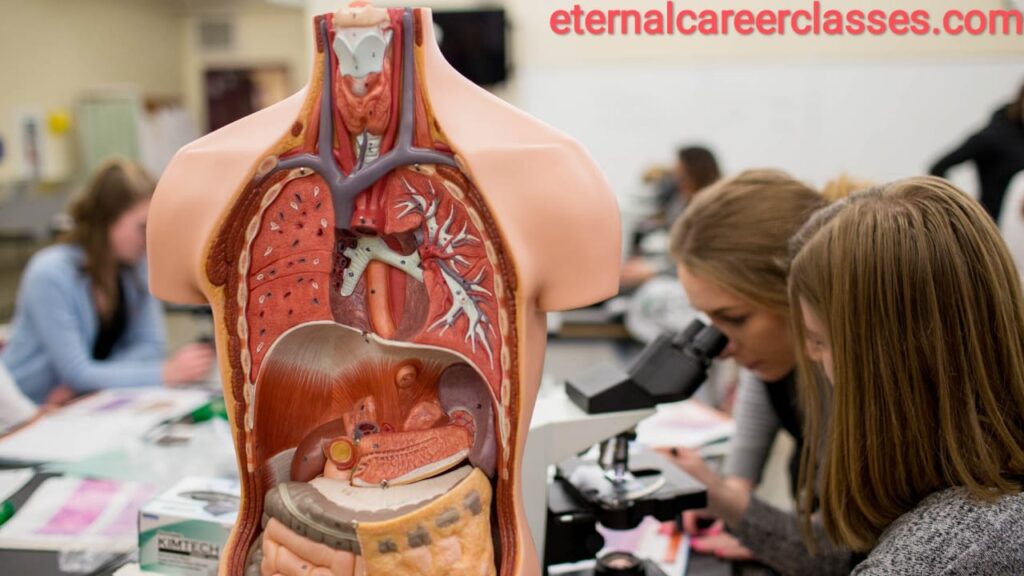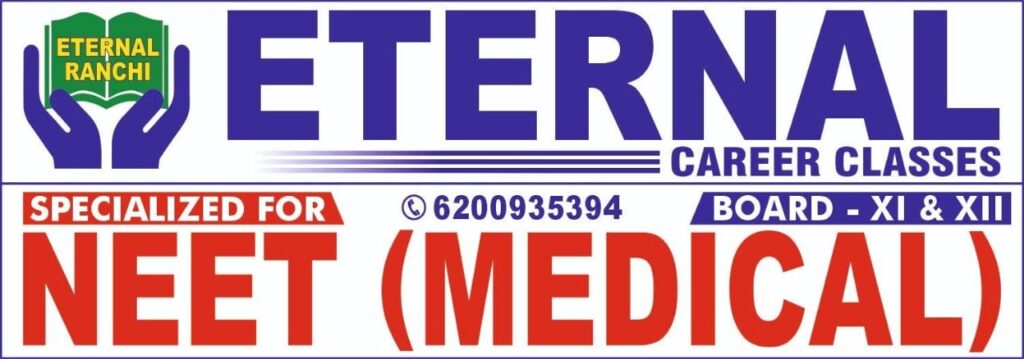
After class 10, biology continues to be an important subject in the study of science. If you choose to pursue the science stream in class 11 and 12, you will study biology as a core subject along with physics and chemistry. In class 11 and 12, you will study advanced topics in biology such as genetics, evolution, ecology, biotechnology, and anatomy. You may also have the option to choose a specialized field of biology, such as botany or zoology.
After class 12, you can pursue a degree in biology, which can lead to various career options. Some popular career options Medical, medicine, biotechnology, environmental science, genetic engineering, marine biology, and wildlife conservation.

Here’s an overview of the Biology syllabus for Class 11:
Unit 1: Diversity of Living Organisms
- The Living World: Biological classification, Taxonomy, Systematics, binomial nomenclature, tools for study of taxonomy.
- Plant Kingdom: Salient features and classification of plants into major groups: Algae, Bryophyta, Pteridophyta, Gymnosperms, and Angiosperms.
- Animal Kingdom: Basis of classification, Salient features and classification of animals, Non-chordate and Chordate, Categories and Phylogenetic relationship.
Unit 2: Structural Organisation in Plants and Animals
- Morphology & Modifications: Tissues, Anatomy, Morphology & modifications.
- Animal Tissues: Epithelial, Connective, Muscular, Nervous.
- Plant Physiology: Transport in plants, Mineral nutrition, Photosynthesis, Respiration.
Unit 3: Cell: Structure and Function
- Cell Theory and Cell as a Basic Unit of Life
- Structure of Prokaryotic and Eukaryotic Cells: Cell wall, cell membrane, cytoplasm, nucleus, mitochondria, endoplasmic reticulum, golgi apparatus, lysosomes, peroxisomes, vacuoles, plastids, ribosomes, microbodies, centrosomes, and centrioles.
- Cell Division: Cell cycle, mitosis, meiosis, significance of mitosis, meiosis in sexual reproduction.
Unit 4: Plant Physiology
- Transport in Plants: Means of transport, plant-water relations, long-distance transport of water, transpiration, uptake and transport of mineral nutrients, phloem transport.
- Mineral Nutrition: Essential minerals, macro and micronutrients and their role.
- Photosynthesis: Significance, Chloroplast, light reaction, Calvin cycle, photorespiration, C4 and CAM pathway.
Unit 5: Human Physiology
- Digestion and absorption: Alimentary canal and digestive glands, digestive processes and role of digestive enzymes, absorption of digested products, disorders.
- Breathing and respiration: Respiratory organs in animals, human respiratory system, mechanism of breathing, exchange and transport of gases, respiratory volumes, disorders.
- Body fluids and circulation: Composition of blood, blood groups, coagulation, lymph, human circulatory system, structure of the heart, cardiac cycle, cardiac output, ECG, Double circulation, regulation of cardiac activity.
- Excretory products and their elimination: Modes of excretion, human excretory system, urine formation, regulation of kidney function, disorders.
- Locomotion and movement: Types of movement, skeletal muscle – contractile proteins and muscle contraction.

Here’s an overview of the Biology syllabus for Class 12:
Unit 1: Reproduction
- Reproduction in Organisms: Reproduction, a characteristic feature of all organisms for continuation of species, asexual and sexual reproduction, pre-fertilisation, post-fertilisation events.
- Sexual Reproduction in Flowering Plants: Flower structure, development, male and female reproductive structures, pollination, fertilisation, fruit formation, seed formation, embryo development.
- Human Reproduction: Male and female reproductive systems, gametogenesis, menstrual cycle, fertilisation, implantation, pregnancy, parturition, lactation.
Unit 2: Genetics and Evolution
- Principles of Inheritance and Variation: Mendelian inheritance, deviations from Mendelism, incomplete dominance, co-dominance, multiple alleles, inheritance of blood groups, pleiotropy, chromosomal theory of inheritance, sex determination, sex-linked inheritance, mutations, genetic disorders.
- Molecular Basis of Inheritance: Structure of DNA and RNA, DNA packaging, DNA replication, transcription, genetic code, translation, gene expression and regulation.
- Evolution: Origin of life, biological evolution and evidences for biological evolution, Darwin’s contribution, Modern synthetic theory of evolution, mechanisms of evolution, Hardy-Weinberg’s principle, adaptive radiation, human evolution.

Unit 3: Biology and Human Welfare
- Human Health and Disease: Pathogens, infectious diseases, immunity, AIDS, cancer, drugs and alcohol abuse, adolescence, and drug/alcohol abuse.
- Enhancement in Food Production: Plant and animal breeding, tissue culture, single-cell protein, Biofortification, genetically modified organisms.
- Microbes in Human Welfare: Microbes in food processing, industrial production, sewage treatment, energy generation, bioremediation.
Unit 4: Biotechnology and Its Applications
- Biotechnology: Principles and Processes: Recombinant DNA technology, DNA sequencing, PCR, gene therapy.
- Biotechnology and its Applications: Biotechnological applications in health, agriculture, animal husbandry and environment, genetically modified organisms, biopiracy and patents.
Unit 5: Ecology and Environment
- Organisms and Populations: Organism and its environment, population and ecological adaptations, population interactions, population growth, and regulation.
- Ecosystem: Ecosystems, components, productivity and decomposition, energy flow, nutrient cycling, ecological succession.
- Biodiversity and Conservation: Biodiversity, patterns of biodiversity, importance of biodiversity, loss of biodiversity, conservation of biodiversity, hotspots, endangered and endemic species.
- Environmental Issues: Air pollution and its control, water pollution and its control, agrochemicals, solid waste management, radioactive waste management, greenhouse effect and climate change, ozone depletion.


VISIT OUR OFFICE : 5TH FLOOR LE-DESIRE COMPLEX, CIRCULAR ROAD ,LALPUR, RANCHI, JHARKHAND
VISIT OUR WEBSITE FOR MORE INFOMATION HTTPS://ETERNALCAREERCLASSES.COM
FOR TEST SERISE, PREVIOUS YEAR QUESTION PAPER OF NEET AND DPP FROM ALL CHAPTERS ARE AVAILABLE ON ETERNAL RANCHI APP.DIRECT DOWNLOAD FROM QR CODE GIVEN BELOW
